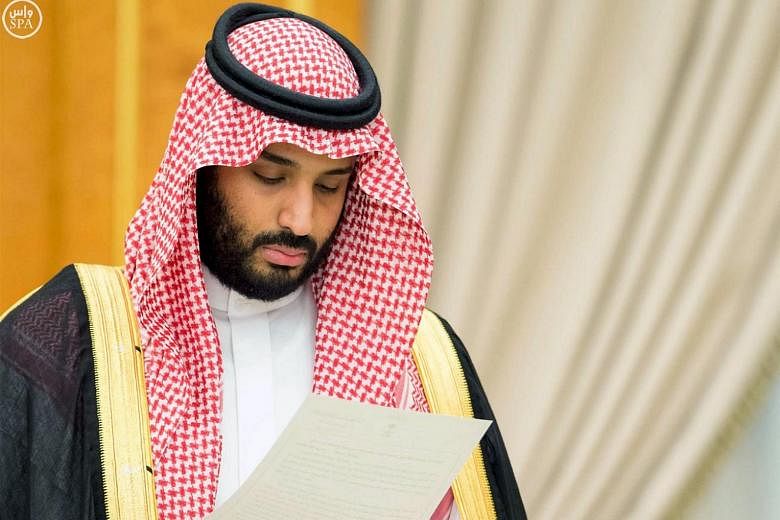Prince Mohammed Salman, son of Saudi Arabia's King Salman and his deputy crown prince, is commonly referred to as the power behind the throne. That phrase falls short after this week's unveiling of his Vision 2030, the most ambitious reform programme in the kingdom's history. Whether he succeeds or fails, for now he is the power.
Since his ageing father succeeded to the throne last year, the 30-year-old prince has taken hold of most of the main levers of power: as economy overlord, defence minister and architect of Saudi Arabia's increasingly hawkish foreign policy. Now he has set breathtaking targets to wean Saudis off what he calls an "addiction to oil", by replacing fast-depleting hydrocarbon revenue with income from private investment, privatisation and the creation of the world's biggest sovereign wealth fund.
He plans to float up to 5 per cent of Saudi Aramco, the state oil company, and place it and other assets in this fund, which he envisages will eventually exceed US$2 trillion (S$2.7 trillion) and become a global investment force. He foresees non-oil revenue quadrupling by 2020 from just over US$40 billion last year, before nearly doubling again by 2030. "I think in 2020, we can live without oil," he said this week .
Prince Mohammed, known in diplomatic shorthand as MbS, has said he also intends to introduce accountability in a public administration plagued by waste and corruption - including at his Defence Ministry, responsible for the world's third biggest arms procurement programme. He intends to raise locally sourced arms production from 2 per cent now to 50 per cent by 2030 .
All this rewrites the social contract whereby Saudis forgo political rights and offer fealty to the House of Saud in return for public sector jobs and cradle-to-grave welfare funded by oil. Coming even close to these goals implies radical social change, an upheaval in governance - all without much sign that the absolute monarchy intends its subjects to become fully participatory citizens.
While no one can fault MbS for his boldness, his programme resembles a mobilisation of technocrats to bypass big political obstacles.
The biggest of these is the cornerstone of the state: the historic compact between the House of Saud and the House of ibn Abdul Wahhab, the 18th-century preacher behind the most extreme version of Sunni Muslim orthodoxy ever attempted as a form of governance.
The ruling family has until now relied on the Wahhabi establishment - as reactionary and bigoted as ever - for its legitimacy in exchange for clerical control over areas such as education and the judiciary, as well as the segregation of women.
That is one lever of power the deputy crown prince does not hold, and it is hard to see his reform plans prospering if this symbiotic compact stays as it is. Deference to Saudi Arabia, moreover, has diminished as understanding grows of the ways in which Wahhabi proselytism feeds into virulent radical phenomena such as Al-Qaeda and the Islamic State in Iraq and Syria. That alone undermines the kingdom's potential as an investment magnet.
MbS, with a reputation for strong-headedness, may be seeking new sources of legitimacy from his own generation. He still has to consolidate his power inside a sprawling, faction-ridden family - but he has given a few hints. This month, the unbridled power of the religious police, the notorious Mutawa, was curbed; the force can no longer arrest, question or pursue those judged in breach of its stern social mores. This week, he said that whether Saudi women - whose participation in the workforce he intends to increase - would win the right to drive was a decision for society. Yet in a recent interview with Bloomberg, he said: "We believe women have rights in Islam that they've yet to obtain" - almost an invitation for Saudis to become more assertive on this and similarly discriminatory issues.
But on education, for example, reform cannot sidestep the clergy. At the heart of the MbS plan is the creation of private-sector jobs for underemployed, often underqualified youth, much of whose schooling consists of bombardment with Wahhabi dogma. One front-rank Gulf employer tells of interviewing a Saudi graduate whose doctorate was on Islamic ablutions.
Prince Mohammed's vision calls for wholesale curriculum reform and five Saudi universities in the top 200. There are no technocratic bypasses on that road, which leads to collision with the Wahhabi clerical establishment.
FINANCIAL TIMES

